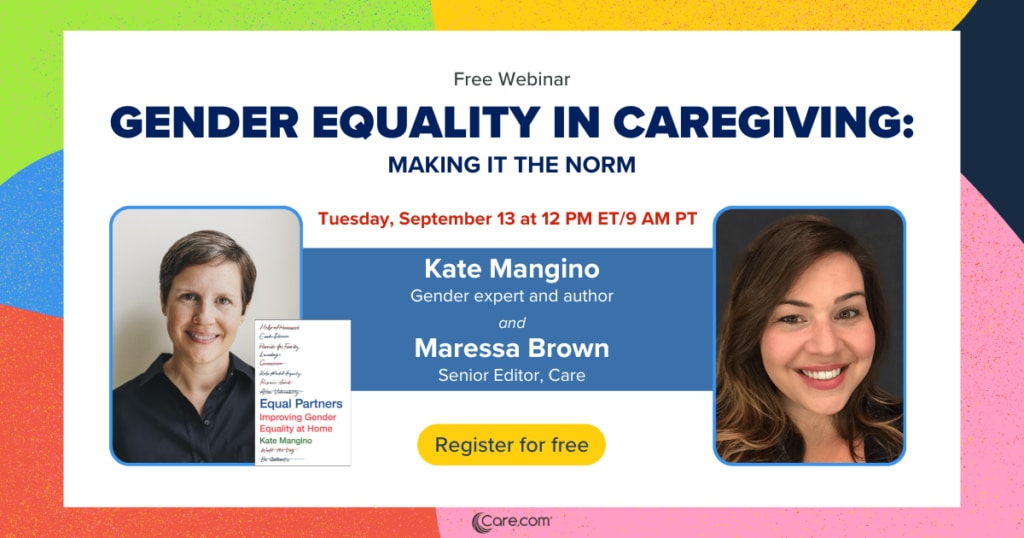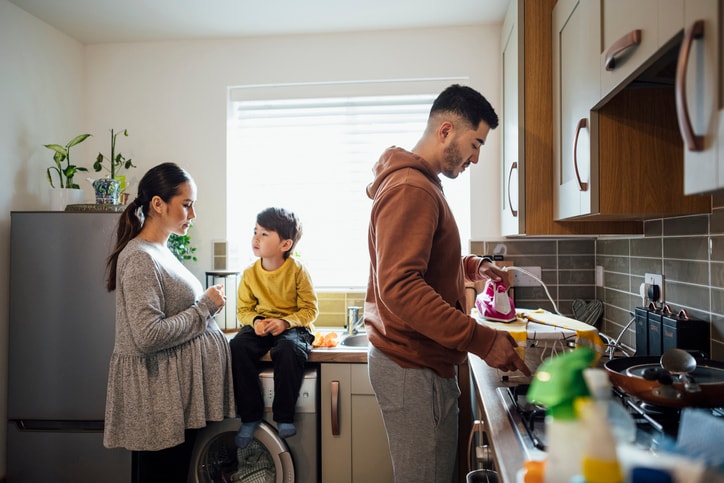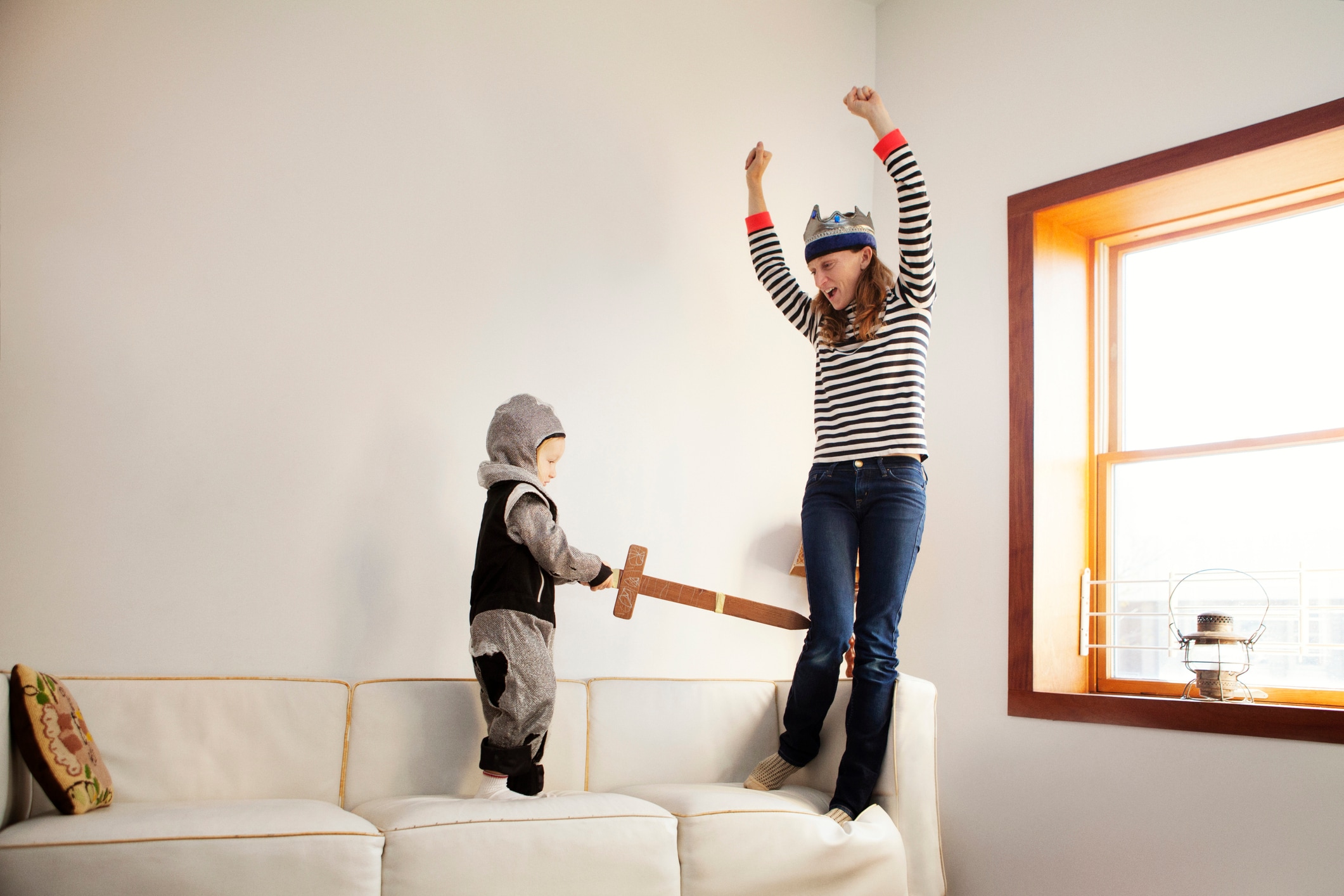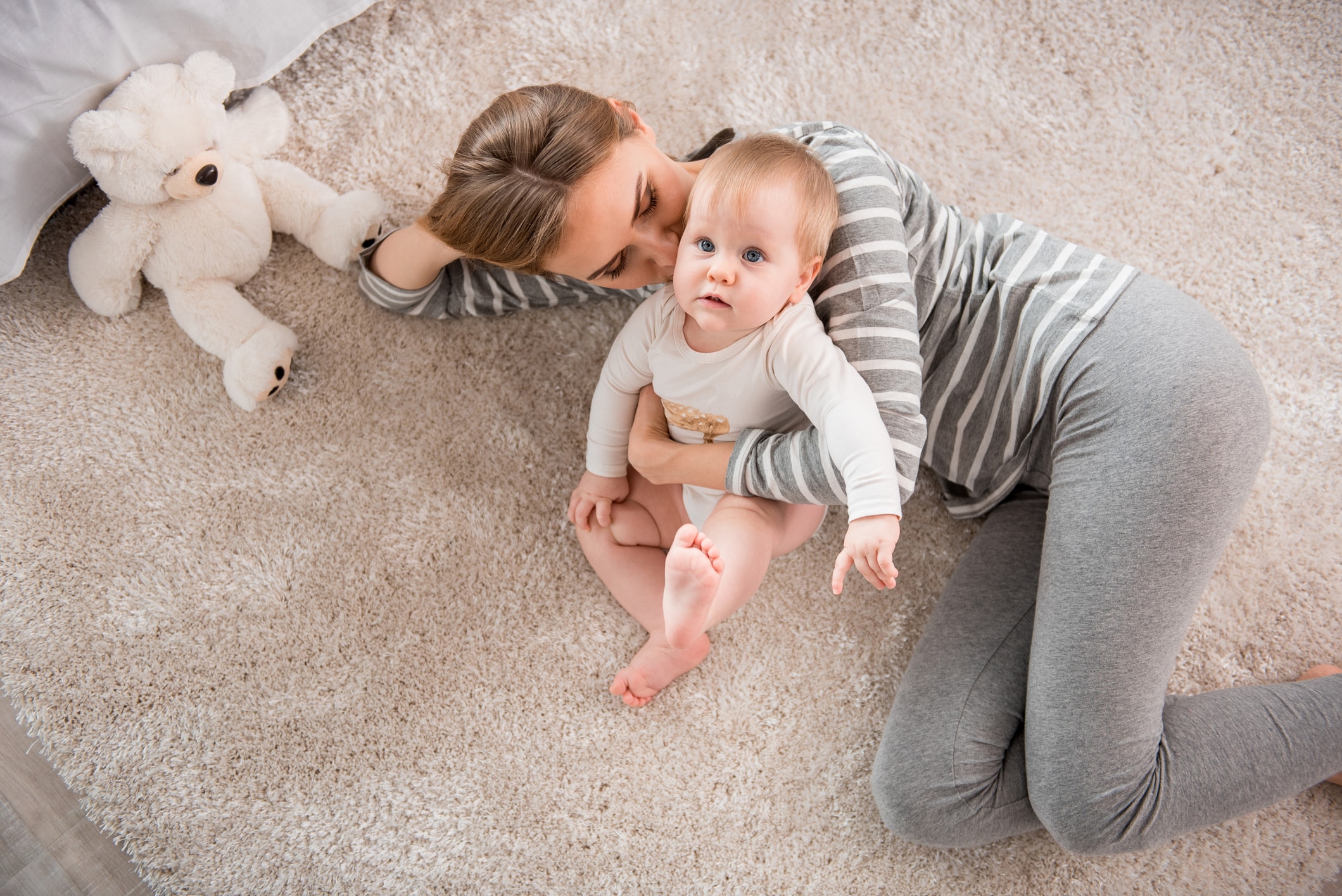Whether you’re talking about the mental load — aka invisible labor like planning and scheduling all the things on any given family member’s agenda — or literal loads of laundry and dishes, a majority of women (59%) say they’re still shouldering more than their spouse or partner, according to an October 2020 Pew Research analysis. It’s an everyday reality that echoes an antiquated but deeply embedded social belief that child care, senior care and care for the sick is “women’s work.”
Although we tend to think we’ve made quite a bit of progress de-genderizing care work, the fact of the matter is that there are still a lot of assumptions about who should be managing our households and looking out for our elders, explains Kate Mangino, gender expert and author of “Equal Partners: Improving Gender Equality at Home.”
“Even if people don’t say it out loud, it’s in our subconscious that women are better suited for caregiving roles, that women have this maternal instinct that men don’t have, that women have the patience, that women have the multitasking skills,” she points out. “Women might actually have more skill sets around caregiving right now, but that’s not biological. It’s because we’ve raised women to be caregivers, and we haven’t been raising boys to be caregivers. And these are all skill sets that are learned.”
Here, why Mangino says gender equality in care work is better for everyone — plus tips for leveling the playing field.
“Gender inequality puts restrictions on everyone’s life, and gender equality opens up opportunities for everyone.”
— KATE MANGINO, GENDER EXPERT AND AUTHOR OF “EQUAL PARTNERS: IMPROVING GENDER EQUALITY AT HOME”
The benefits of splitting care work equally
For the last several decades, there’s been conversation around the fact that care work needs to be divided more equally among men and women, because women are hurting. And while Mangino says that’s “a very valid argument,” the fact is that it is an argument that’s not working — and it’s only half of the story.
“Gender inequality is bad for everyone, and parity is better for everyone,” says Mangino. “Gender inequality puts restrictions on everyone’s life, and gender equality opens up opportunities for everyone.”
Case in point: In research for her book, Mangino interviewed, identified and interviewed 40 men living as equal partners, all of whom are from diverse backgrounds, different geographic locations, varied economic circumstances and racial identities. Five are in same-sex relationships and 35 in different sex relationships.
The overarching takeaway that Mangino appreciated the most: “They’re not living as equal partners because it’s better for their wife or because they’re guilted into it,” she explains. “They don’t feel they’re giving anything up. They’re living as equal partners because it makes them happier than if they weren’t. It’s because it makes their life better. They have a great relationship with their partner. They have fantastic relationships with their kids. They feel like they are contributing to their family. And that makes them feel proud.”
The men were also all “excited that they get to have a nurturing and caregiving role in the home,” explains Mangino.
How to de-genderize care in your own home — and make a difference beyond
To promote equal caregiving, Mangino suggests making the following moves.
Create opportunities for boys to practice caregiving
Mangino says that while we often say to little girls, “You’ll be a great mom someday,” we rarely say, “You’re gonna be such a great daddy” to little boys. And while we’ve done a great job in changing the way we raise women, discussing girls’ empowerment and encouraging them to get involved in STEM programs, says Mangino, we haven’t changed the way we raise boys to really encourage nurturing and caregiving.
“If we did more of that at a younger age, we would see huge benefits when they are grown up,” she explains.
That’s why she encourages parents and caregivers to set any caregiving expectations equally for both girls and boys. A few other smart moves:
- Talk about how your family values caregiving.
- Create opportunities for boys to babysit or to take care of little kids in the neighborhood.
- Make sure you’re having an intentional conversation about caregiving with boys.
“Women are already earning less money on the dollar, especially women of color, than men. So if whoever earns less in the home has to do more in the home, which then prevents her from accelerating career, we’re just perpetuating this cycle of a pay gap in the workplace and a household gap at home.”
— KATE MANGINO
At the outset of a new relationship, ask one crucial question
If you’re single and dating, Mangino advises asking a potential partner if they believe the person who makes more money should do less housework. “The reason why this is so dangerous is we know there’s a wage gap,” she explains. “Women are already earning less money on the dollar, especially women of color, than men. So if whoever earns less in the home has to do more in the home, which then prevents her from accelerating career, we’re just perpetuating this cycle of a pay gap in the workplace and a household gap at home.”
That’s why it’s so important for partners to agree, early on, that if both are working full-time, they need to be doing equal work in the home.
Talk to your existing partner about socialization
If you’ve already been with your partner for a while and already have established patterns in your home, it can be challenging to switch gears, but Mangino says it’s possible to start a conversation by pointing to gendered patterns that are happening on a global level.
“It’s really healthy to take it away from ‘you’ and ‘me,’” she explains. In other words, instead of saying “here’s what you’re doing” or “this is what I’m doing,” link your individual household behaviors to the fact that you were both raised to behave in specific ways, based on your gender. “You can say, ‘That’s holding us both back. It’s limiting you emotionally, and it’s limiting me professionally. We’re both suffering from emotional health problems because of it,’” suggests Mangino.
She continues, “Talk through that and make sure you create space for both of you to share what’s frustrating about your current configuration.”

Address the mental load
Whether you’re hoping to level the playing field in your home with your partner or while providing care for an older loved one with a sibling of the opposite sex, you might want to try this exercise that spotlights both parties’ mental load.
“You both write a long list of every single thing you did,” explains Mangino. “Maybe pick one day when you’re both at work, and one day when you’re both at home — a weekday and a weekend day. And you’re not talking about paid work. And list all of that invisible labor.”
So, if you were folding laundry, but you’re also thinking about what you were going to make for dinner, you write both down. If you’re driving to work but thinking about unloading the dishwasher when you get home or checking in with your aging parent’s doctor, you can add that as well.
Then, you can compare lists. “You might be surprised that your partner is actually doing more than you thought,” she explains. “You might find [your mental load is] more equal than you realize. Or it could show you that one person is doing far more work than the other one, and that would be illuminating as well.”
The bottom line on gender inequality in caregiving
It’s important to point out that no one gender is to blame for inequality in care work, says Mangino. “We’re all products of our gendered environment, and we’re all playing out our gender roles, and we’re all limited because of them,” she says. “And the only way we’re going to change is if we’re all cognizant of what’s happening, and we make some really intentional choices about our own lives.”





